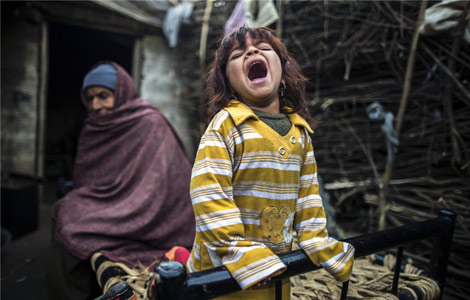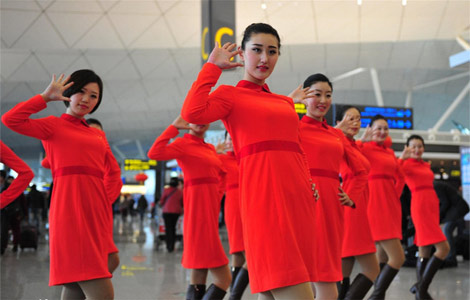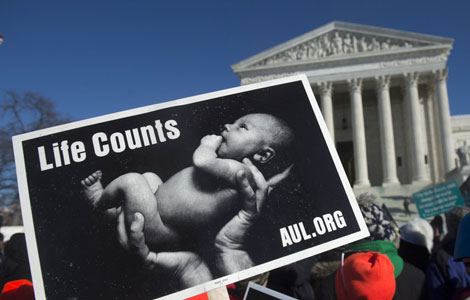China's economic reforms resonate with Davos participants
Updated: 2014-01-24 15:38
(Xinhua)
|
||||||||
DAVOS - China's economic rebalancing away from trade and investment toward domestic consumption will bolster global growth, according to many economists and officials attending the World Economic Forum in Davos.
Two separate events, held in Davos Thursday under the themes of "Bricks in Midlife Crisis" and "China, Europe, US: The Competition Challenge", sparked wisdom and ideas on the issue from the participants.
China has lowered its growth pace to create more room for economic restructuring, said Liu Mingkang, former chairman of the China Banking Regulatory Commission at one of the events.
"The growth pace is slowing down, that's a fact," he said, adding the Chinese economy grew 7.7 percent in 2013, down from double digits only a few years ago.
The slowdown would not affect China's goal to double its GDP during the 2010-2020 span.
China would change its growth model from relying on export and fixed asset investment to promoting domestic consumption, and it is determined to reduce overcapacity and local authority platform borrowing, he added.
"The process is painful, but no pain no gain, as the saying goes," he said.
Lloyd Blankfein, the head of Goldman Sachs, said the world was focusing on China.
"A lot of eyes are on China," he said, adding that China's growth rate has more consequences on global economy.
"If China continues to grow, I get more optimistic for the US," he said, adding he was bullish on China.
"If you want sustainable growth, environmentally safe and producing high jobs, you have to accept a low goal," he said.
The Chinese are good owners, their capital is good, and their investment brings jobs, Blankfein said when talking about Chinese food company Shuanghui's acquisition of the US pork producer Smithfield last year. He said the deal was good.
Zhu Min, deputy head of the International Monetary Fund, said China's economic rebalancing have a significant long-term impact on many countries.
"We welcome a moderate slowdown in China because current investment levels are unsustainably high," he said.
Slowed growth would have a significant impact across a range of economic, trade and financial variables among China's major trading partners and commodity exporters, he added.
Nick Clegg, Britain's deputy rime minister, said the West don't have to be afraid of investment from China.
He said the recent investments by China, including a 10-percent stake in Heathrow airport, were welcome and any open economy like his country should not turn down such investments.
"There has been a complete transformation of Chinese investment," admitted Clegg, as statistics show Chinese investment in Britain in the past 18 months was much more than that in the previous years.
"But it's still quite low," he said.
- Davos important to exchange ideas in time of rapid change
- Vigor of global capital market in doubt as liquidity falls off
- Global economy grows on 'two engines': World Bank chief
- World's political, business leaders gather in Davos for WEF
- Davos forum opens to discuss world's underlining issues
- Li calls for open, cooperative global economic system
Most Viewed
Editor's Picks

|

|

|

|

|

|
Today's Top News
Li seeks 'good beginning' to economy in 2014
CPC rolls out 'mass line' rules
China reports 6 new human H7N9 cases
China seeks to attract skilled foreign workers
NSA phone program illegal
Abe told to face up to wartime past
Cities halt live poultry trading
State Council mulls work report
US Weekly

|

|














